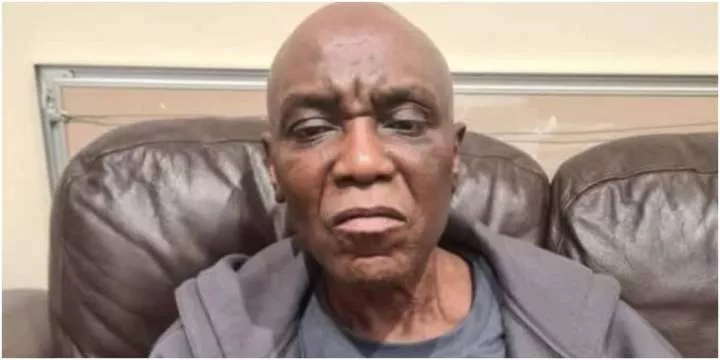Federal Govt at loggerheads with Police over creation of Police Pension Board – Crime Channels

Federal Govt at loggerheads with Police over creation of Police Pension Board
The move by the Nigerian Senate to amend a bill for establishing the Nigeria Police Pension Board has pitted the federal government and the Nigeria Police Force against each other, with each advancing reasons for and against the bill for managing police pensions.
Serving and retired officers of the Nigeria Police Force are vehement in their resolve to withdraw from the Contributory Pension Scheme (CPS), which was enacted in 2004. They complain that the scheme’s meagre pension payments are too little to cover the average retiree and that pension savings have been mismanaged. The police say they want a board administered by force personnel in line with the military, SSS, and NIA.
Speaking through the National Pension Commission (PenCom) at a public hearing on “The Bill Seeking to Exit the Nigerian Police Force from the Contributory Pension Scheme (CPS),” the federal government said the move is unsustainable and would lead the country back to the dark days of unpaid pensions.
Commissioner of administrations at PenCom Farouk Aminu, who represented the Director General of PenCom, said police personnel’s concerns regarding pension adequacy “are valid but do not warrant an exemption from the CPS” since there are ample mechanisms to address the issue of enhancing retirement benefits.
PenCom has consistently proposed practical solutions, including increasing pension contribution rates, offering additional retirement benefits, and implementing periodic pension reviews under the existing CPS framework. The measures are designed to enhance the financial well-being of retired police personnel without compromising fiscal discipline or administrative efficiency.
Chairman of the committee on establishment and public servant, Senator Cyril Faseri, representing Ekiti North in the Senate, said the amendment aims to ensure that the retired police officers receive the pensions they deserve. “Our police officers who put their lives on the line to protect Nigeria need to be taken care of. We value your input and opinion, which will help shape the legislation on the bill. It will better help to ascertain the needs of Police officers in formulating the bill,” Faseri stated.
The bill’s sponsor, Senator Binos Dauda Yaroe, who represents Adamawa South, said it was regrettable that despite their importance, police officers are left in the CPS against what’s obtained in the Military, SSS, NIA, and others.
Under the current arrangement, a retired commissioner of police takes a misery of N70,000, a deputy commissioner of N50,000, and an assistant commissioner of police gets about N30,000 retirement benefits in a month. “This is by any account shameful,” Yaroe stated.
Chief executive officer of Pension Fund Operators Association of Nigeria (PenOp) Oguche Agudah said leaving the contributory pension scheme would mean leaving the frying pan to fire because their pension would come from budgetary allocation. “So leaving the scheme is not the solution because it’s not sustainable,” he said yesterday in Abuja, adding, “If the police are going to leave this scheme, they will need at least N3.5 trillion today invested every year, at least 10% a year for them to be able to pay the pensions for about 400,000 police.”
Director of Technical Services from the Office of the Secretary to the Government of the Federation, Oyedeji Ibrahim, said the office aligns with PenCom’s position to keep the police in the contributory pension scheme.
The bill was passed at the tail end of the 9th Senate. Still, it was only made to pass through the House of Representatives for concurrence after the end of the last administration, warranting its representation for legislative action.





